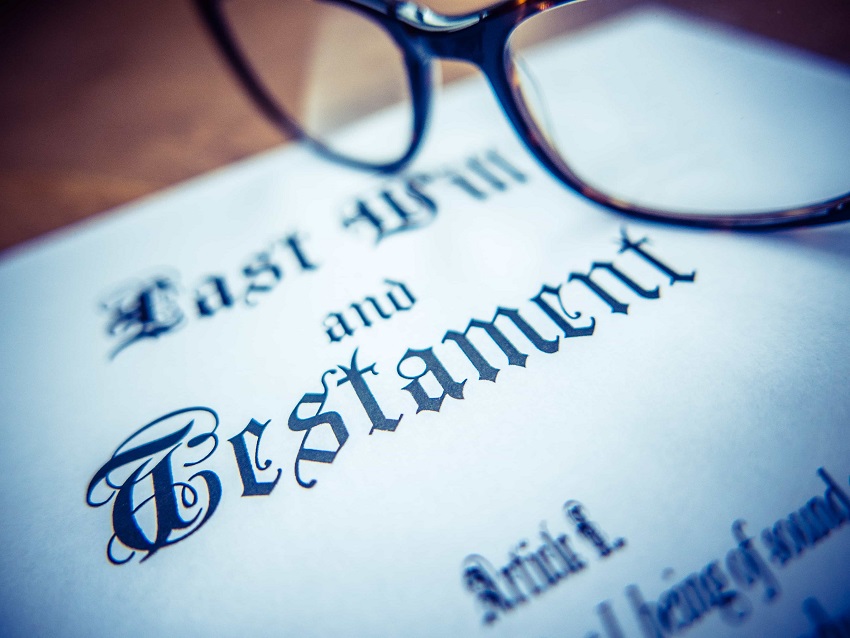A YouGov survey has revealed that 44% of over-50s have changed their Will several times due to the complexities of modern family relationships.
Law firm Winckworth Sherwood, who commissioned the study, found that people typically changed their Will because of either specific life events or sudden changes in life circumstances.
Examples of life events which spurred people to think about making changes to their Wills include the arrival of children and the death of a parent or divorce.
Tim Snaith, Partner at Winckworth Sherwood, says:
“There’s a long-standing taboo around the subject of death, and many prefer to ignore the subject entirely. What this shows is that of those who have grasped the nettle, and begun to plan for that inevitable day, are also keeping an eye on the arrangements that they have put in place.”
Due to Brits not communicating about death, research by LifeSearch has incited a #LetsStartTalking campaign after findings revealed nearly a quarter (24%) of Brits avoid talking about death even though the passing of a loved one can have a huge impact, both financially and emotionally.
Winckworth Sherwood’s findings revealed 26% of over 50s have not written a Will at all, which leaves their assets to pass under the intestacy rules. In these circumstances, this can lead to claims going to court or even worse, assets being left to the State.
Tim further adds:
“There is no one size fits all solution to a Will, and if you have one, it is really important to review it from time to time to make sure it still reflects your wishes. Just as many problems can arise from an out of date Will as can occur without a Will at all.”
Family structures have evolved and become more complex due to more people cohabiting, getting divorced, remarrying, which creates blended families. Due to the dynamics of families changing it has meant that contested Wills are on the increase according to the Ministry of Justice. Furthermore, Kings Court Trust 2018 findings found the number of family disputes increase year on year – with results revealing that one in twenty adults have had a dispute about a Will.
However, contentious probate, whereby family members will contest a Will because they feel they have not been left appropriate provision in a Will is more accessible than ever before. Online access means that more people are likely to question the contents of a Will and high-profile Will contests are ensuring it’s likely to happen more often.
Tim comments:
“Preparing a Will is the first step. The next is to keep it under review. Wills are, however, the tip of the iceberg. Death creates all sorts of issues; for example, at a practical level, assets are frozen and direct debits are stopped, which in the immediate period after death can create significant problems for loved ones. Death is never going to be a happy subject but the more planning done around it, generally, the risk of issues for those left behind is reduced.”
With 25% of UK adults over the age of 55 without a Will, last month, a collective group of charities promoted a free Wills month for people over 55 to encourage them to make a Will to ensure their final wishes were carried out. Furthermore, a recent report by Royal London also found that 31% of respondents that had made a Will had lived through a major life event like marriage or having a child. However, 53% had failed to update their Will following these monumental and life-changing events.
Consequently, the recent Office for National Statistics from 2015 found that men aged over 55-years are increasingly deciding to marry, with 25,000 remarrying in 2015. As personal lives change and more remarry, creating blended families, it is vital that a valid Will is in place.
One case which shows how crucial it is to make a Will and keep it up to date in a digital age is the sudden death of a CEO, who had cryptocurrency belonging to investors worth an estimated £105 million – but failed to record any instructions or passwords in his Will to be followed in the event of his death.
This situation highlights the importance of inheritance planning in an increasingly technological world. It is vital that professional Will writers make sure their clients understand the implications of not planning their electronic estate appropriately by including instructions for accessing all digital assets and to provide guidance for effective estate planning for the future.
As a Will writer, are you seeing more older clients updating their Wills on a regular basis? If so, have you found those changes included digital asset instructions for beneficiaries?




















